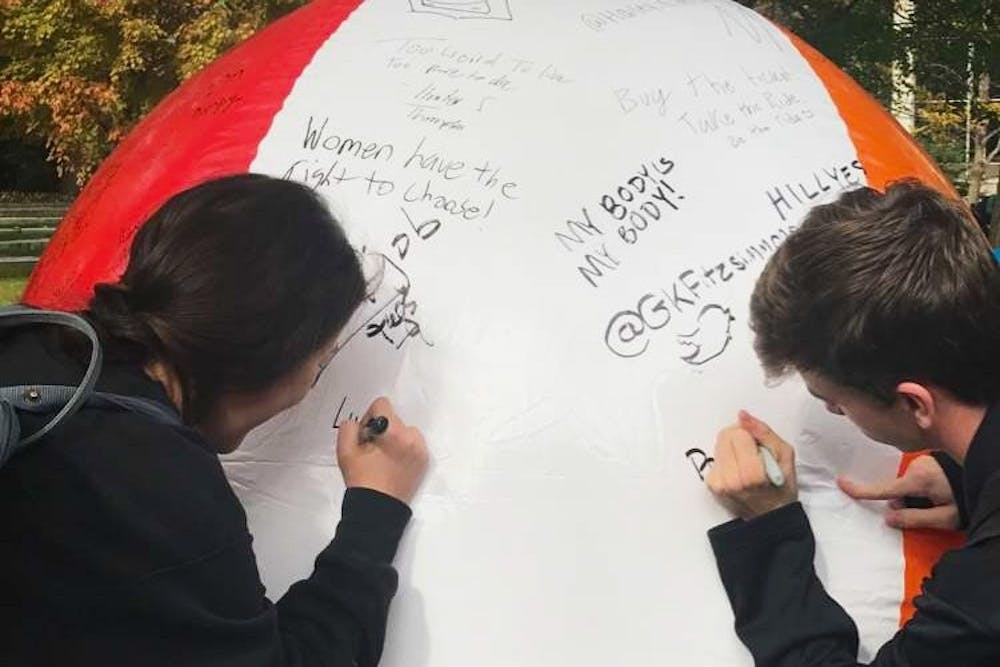Free speech at colleges nationwide has once again become a topic of discussion after protestors at an event at Middlebury College became violent.
A conservative group at Middlebury College, the American Enterprise Club, invited controversial author Charles Murray to speak at an event that included “left-leaning” professor Allison Stranger as an interlocutor in a question and answer session according to The Atlantic.
After protesters attempted to disrupt the event, Middlebury’s administration relocated Murray and Stranger. Protestors, after the question and answer session concluded, surrounded Murray and Stranger in a physical confrontation that led to Stranger suffering a neck injury after a protestor pulled her by the hair. In an op-ed published in The New York Times, Stranger spoke out about the incident.
“There is no excusing what happened at Middlebury, and those who prevented Charles Murray from speaking must be punished for violating college rules. But what the events at Middlebury made clear is that, regardless of political persuasion, Americans today are deeply susceptible to a renunciation of reason and a celebration of ignorance,” she wrote in the editorial.
Richard Reeves and Dimitrios Halikias of Brookings conducted a statistical analysis of data from the Foundation for Individual Rights in Education in response to the incident.
They concluded that “the more economically exclusive the institution, the more likely the students have attempted to hinder free speech." Middlebury, the authors wrote, has equally as many students from the top 1 percent of households in the country as enrolled students in the bottom 40 percent.
University of Pennsylvania students have debated free speech on campus in the past. Last year, The Statesman held a free speech demonstration in an effort to encourage Penn to maintain an environment conducive to free speech. Based on the findings of Reeves and Haliakias, Penn would be statistically more likely to have protestors attempt to restrict free speech based on a report that suggested Penn has more students from the top 1 percent of households than the bottom 60 percent.
However, FIRE, the Foundation for Individual Rights in Education, gives Penn a “green light” rating, the highest rating awarded for protection of free speech.









